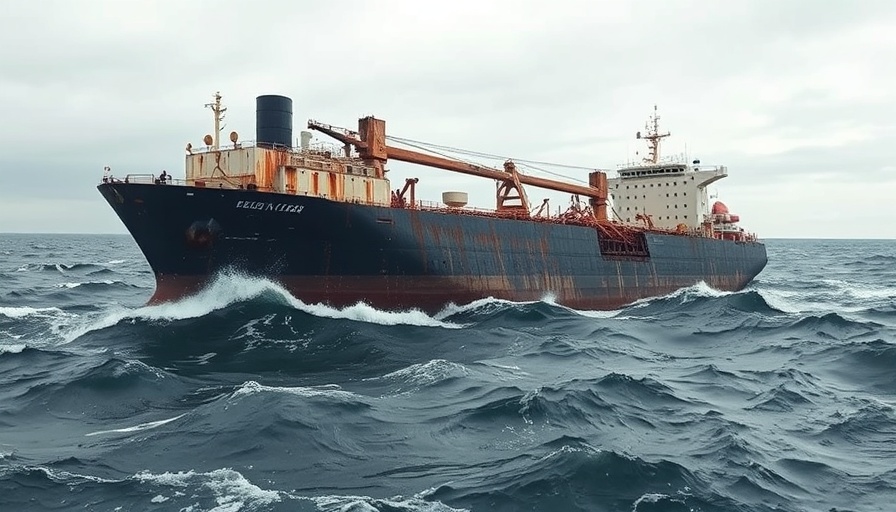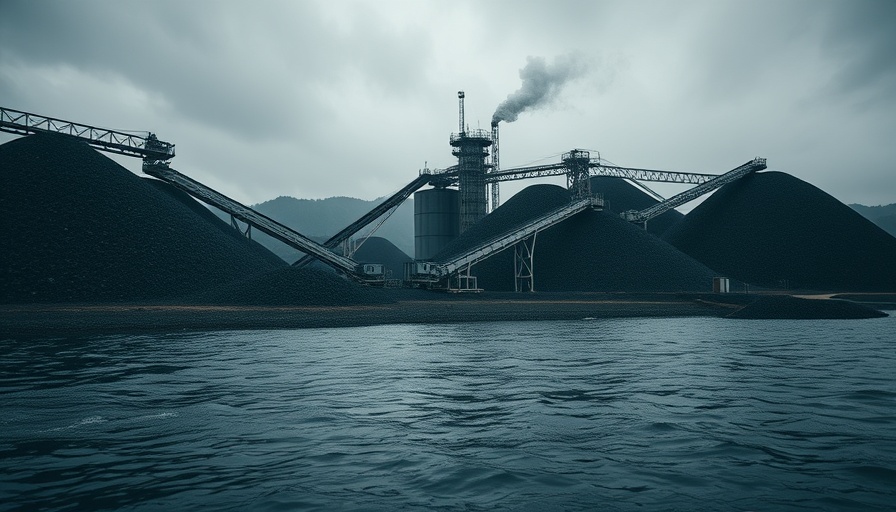
North Sea Catastrophe: The Immediate Impact and Future Risks
The recent collision between an oil tanker and a cargo ship in the North Sea has raised significant alarms regarding the ecological and commercial future of one of the UK's vital marine regions. As an oil tanker carrying jet fuel was hit by a cargo ship, large explosions filled the skies with thick plumes of smoke, and an undetermined quantity of fuel has begun to spill into the water. Marine ecologists from the University of Hull have immediately expressed concern over the potential ramifications for both local wildlife and the commercial fishing industry reliant on this nourishing sea.
The Importance of the Affected Marine Area
The collision occurred within the Holderness offshore marine protected area, recognized not only for its biodiversity but also for its importance to local fishing economies. This sector sustains a significant crustacean fishery, with annual lobster harvests reaching approximately £15 million—a vital source of income for local fishermen and their families. The seabed here is characterized by coarse sand and cobbles ideal for the thriving lobster nursery, creating further stakes in the fight against pollution resulting from the spill.
Potential Ecological Devastation: Birds and Marine Life
As spring approaches, seabirds, including thousands of puffins and razorbills, return to the Flamborough and Filey coast, where they birth and rear their young. This coastal area is a sanctuary for over 250,000 nesting seabirds, and any disruption can have a devastating ripple effect throughout the ecosystem. Moreover, the North Sea is home to a variety of marine species, like the ocean quahog and harbor porpoises, which face threats from immediate contamination and long-term damage to their habitats. Chemical spills don't simply impact the immediate area; they hold the potential to taint food webs that sustain both wildlife and local fishing communities.
Local and Global Ramifications
The repercussions of such incidents often extend far beyond immediate local effects. With the North Sea representing vital fishing grounds not only for the UK but for various European countries, the potential for extensive environmental damage signifies a pressing concern for many neighboring nations. Past oil spills have led to prolonged fishing bans where life was severely contaminated, presenting food security risks for European consumers dependent on these fish stocks.
Government and Environmental Response
The UK Coastguard has declared an exclusion zone around the incidents' location while they assess the environmental damage and develop a comprehensive response plan. Experts stress the importance of quick action to mitigate the long-lasting impacts that could result from the collision, as the degree of contamination will depend heavily on the type and volume of oil spilled and its interaction with the local marine environment.
Conclusion: A Call for Action Amidst Uncertainty
As environmentalists, industry leaders, and local communities await further assessments of the situation, it is crucial to push for robust preventive measures to safeguard one of Britain's most critical coastlines from similar future incidents. The urgency to address and respond to these challenges has never been so clear. With the impending nesting season for thousands of birds and a bustling fishing industry under threat, proactive community engagement is vital for ensuring that governmental and corporate actions effectively protect this essential marine environment.
 Add Row
Add Row  Add
Add 




Write A Comment